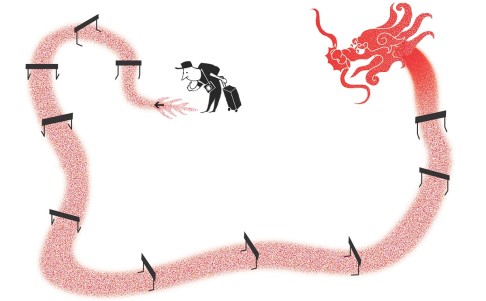China's tourist turn-offs: visitor numbers down thanks to rising yuan, pollution and visa issues
Complex visa rules, appreciating currency and pollution conspire to turn tourists away from China


China also requires a travel itinerary in advance and this is also a turnoff, says Berger, who likes to improvise his journey once he arrives.
"My travel plans also often change when I meet other travellers who recommend places not to miss, and the pre-set itinerary makes this difficult," he says.
Rather than face such hurdles, Berger now gives China a miss and heads for more tourist-friendly Asian destinations like Vietnam, Malaysia, Japan and Thailand.
While a record number of Chinese travelled overseas in 2014, spending hundreds of billions of US dollars, the country's inbound tourism suffered another year-on-year decline, a trend experts and travellers say is exacerbated by its appreciating currency, pollution and complicated visa requirements.
Statistics released by the China National Tourism Administration (NTA) and the World Tourism Organisation (WTO), an agency of the United Nations, revealed the dimming enthusiasm for China among international travellers in 2014, a year when other top Asia destinations reported robust growth.